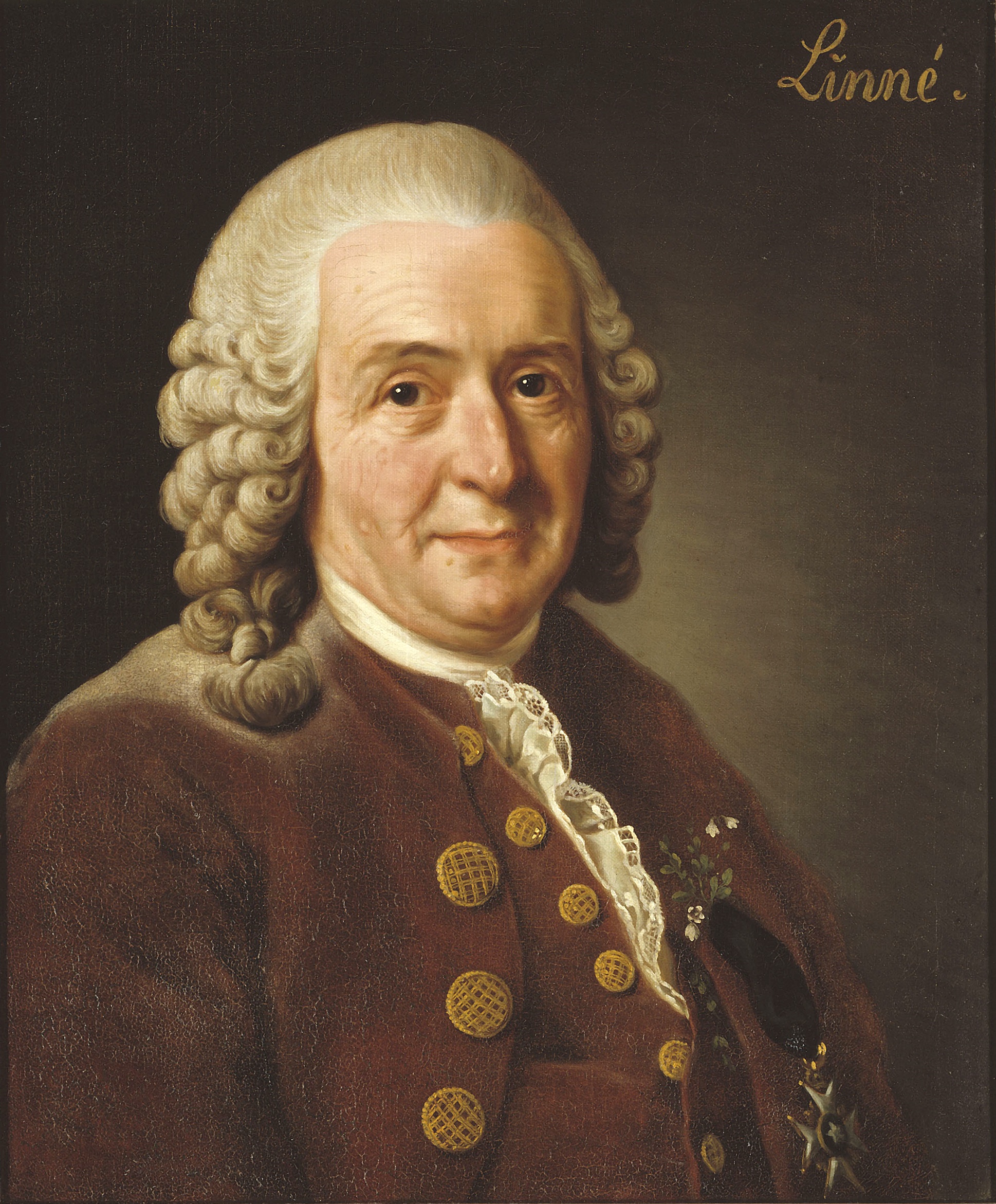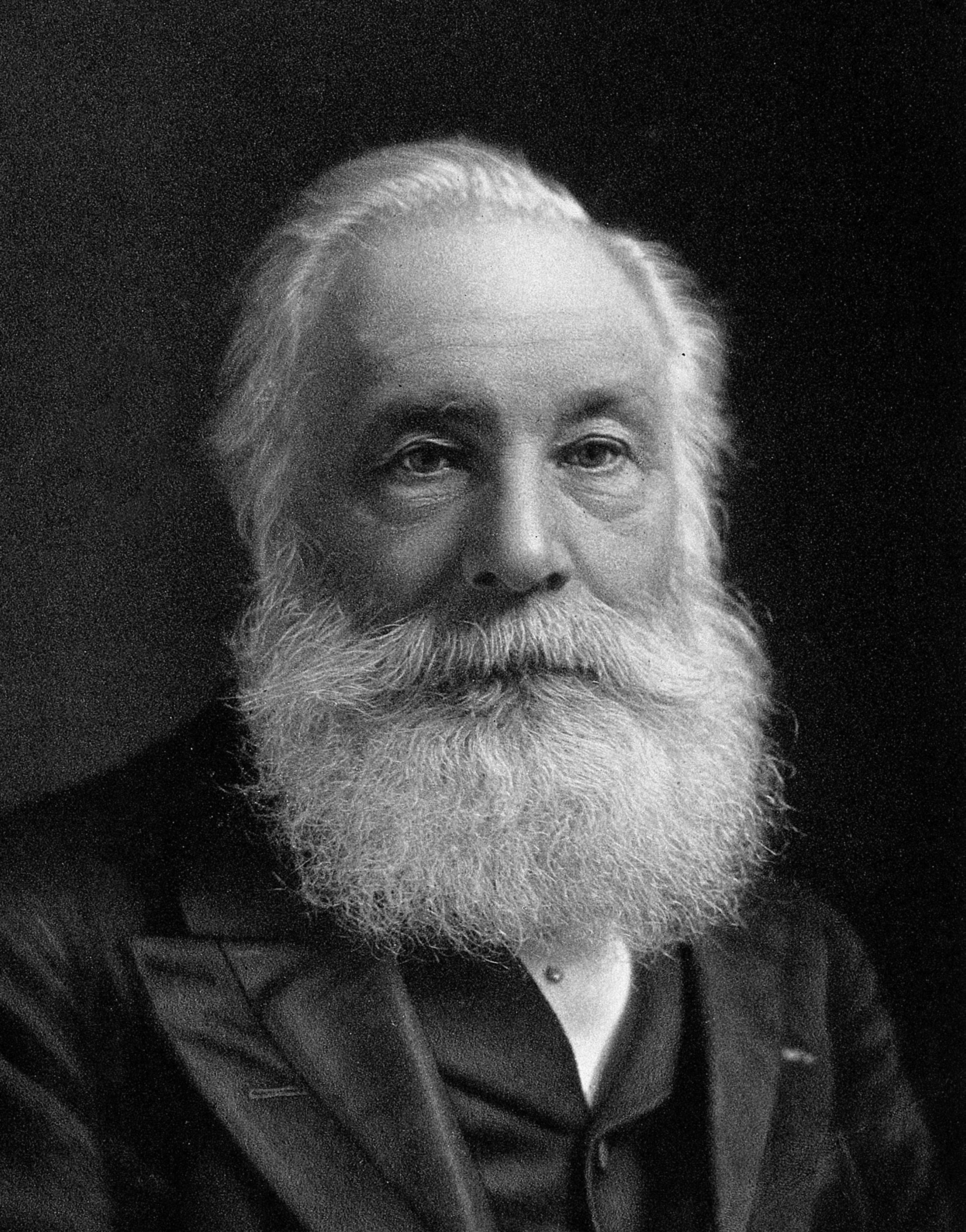An Advent Calendar of Notable Scientists
Carl Linnaeus

Image from Wikipedia
Swedish botanist, zoologist, and physician who formalised binomial nomenclature, the modern system of naming organisms. He is known as the “father of modern taxonomy”.

British chemist and entrepreneur best known for his serendipitous discovery of the first synthetic organic dye, mauveine, made from aniline. Though he failed in trying to synthesise quinine for the treatment of malaria, he became successful in the field of dyes.

English naturalist, geologist and biologist, best known for his contributions to the science of evolution. His proposition that all species of life have descended over time from common ancestors is now widely accepted, and considered a foundational concept in science. With Alfred Russel Wallace, he introduced the idea that the branching pattern of evolution resulted from the process of natural selection.

Prominent German polymath and one of the most important logicians, mathematicians and natural philosophers of the Enlightenment. As a representative of the seventeenth-century tradition of rationalism, Leibniz’s most prominent accomplishment was conceiving the ideas of differential and integral calculus, independently of Isaac Newton.

Polish (naturalized-French) physicist and chemist who conducted pioneering research on radioactivity. She was the first woman to win a Nobel Prize, is the only woman to win the Nobel prize twice, and is the only person to win the Nobel Prize in two different scientific fields.

English physician who made seminal contributions in anatomy and physiology. He was the first known physician to describe completely, and in detail, the circulatory system and properties of blood being pumped to the brain and body by the heart.

Possibly the most accomplished of all medical researchers of antiquity, Galen influenced the development of various scientific disciplines, including anatomy, physiology, pathology, pharmacology, and neurology, as well as philosophy and logic.
Once more, dear friends, unto our monthly collection of links to items you may have missed the first time. And we have a well stuffed list this month.
Science, Technology, Natural World
First off something to worry you (well maybe) … Scientific American looks at how easy it is to hack GPS, and the USA’s lack of a backup. [£££]
I’ve never liked the way we change the clocks twice a year, and it seems there is evidence that daylight saving time does affect our health.

Another of my bêtes noir is the way wasps get such a bad press and abuse. We need to learn to love them as they’re amazing pest-killers and useful pollinators. [£££]
Many more birds migrate than we realise. Now a Robin has been recorded doing 140 mile crossing of trhe North Sea in just four hours
And now for some good news … a mouse deer thought to be extinct (it’s not been seen for nearly 30 years) has been found alive in Vietnam.
Now you now we had to get to cats eventually! It seems that our cats are more attached to us than we thought. [£££]
A mysterious 300 million-year-old fossil known as the Tully Monster could be a vertebrate or an invertebrate: scientists are still trying to decide and the oddities keep multiplying.
Do animals speak to us? Dutch philosopher Eva Meijer says that they do but we don’t (know how to) listen to them.
Finally in this section, one not for the squeamish. A look at how forensic scientists are studying the microbiological decay of corpses using human bodies. [LONG READ]
Health, Medicine

In the 1950s, photojournalist Lennart Nilsson set out to capture photographs of foetuses, and his Foetus 18 Weeks may be the greatest photograph of the 20th century.
Why is measles such a dangerous illness, even after recovery? Because it appears to make the body forget how to fight infection.
Now here’s something very odd: apparently some left-handed women can smell normally despite having olfactory bulbs in their brain. And this is only left-handed women!
So are women’s experiences of menopause psychosomatic? It seems they may be (at least in part) as women’s experience of menopause appears to be related her family’s experiences.
Sexuality
So here are seven myths about fertility.
New in London: the world’s only Vagina Museum. Needless to say it’s dedicated to female genitalia. [LONG READ]
Environment
We aren’t nearly good enough at recycling, so here are 15 ways to reduce your plastic footprint.
The National Trust is set to release families of beavers at sites in Somerset and Sussex as part of plans to ease flooding and improve biodiversity.
Art, Literature, Language
Italian police have arrested over 20 people in connection with the trafficking of archaeological artefacts.
Now here’s another oddity. It appears that our (western) perception of musical octaves is learned and not hard-wired in the brain.
Art can be cathartic, as Laura Dodsworth discovers when talking to high security prisoners about her work.
History, Archaeology, Anthropology

Should the Iron Age really be called the Flax Age? [LONG READ]
The Ancient Egyptians mummified millions of sacred birds, but were they wild caught or captive bred?
So just why was the year 536 AD the worst year to be alive?
Researchers are linking the Catholic Church’s ban on cousins marrying (well, incest in general) to the emergence of western individualism. [£££]
We all know that inflation happens, but how much has the value of money changed over the centuries? It seems it depends on how you measure it, and that isn’t easy.
It is a wise child who knows its father. New research shows this is truer in cities than rural areas.
London
The Museum of London is planning to move into part of the old Smithfield Market. IanVisits looks inside the space before construction work begins.
Meanwhile London blogger Diamond Geezer gives us an A to Z of Kew Gardens.
Food, Drink
Ten of the world’s most environmentally controversial foods.
Zoe Williams in the Guardian contends that there’s a generation gap in food.
Lifestyle, Personal Development
Collective worship in schools must be provided for all pupils in an appropriate way for their beliefs, and not be single religion.
One woman tells the story of how she became an astrologer, what it was like, and why she stopped.
The patriarchy is not the natural human state, after all hunter-gatherer societies remain remarkable for their gender equality. [LONG READ]
Attachment: are you a secure, avoidant or anxious partner?
We all know about green space, but blue space? It appears that time spent near water is the secret of happiness.
So fifty fascinating facts about our friendly felines.
People
And finally … Who would have guessed that Rod Stewart has spent over 20 years building a mega model railway?
Another instalment in the dull days following Christmas! Have a good one.